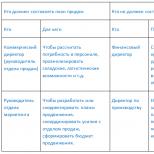I want to insure my apartment. How to do it right?
I want to insure my grandmother's apartment. Am I entitled to this if I am not the owner? Can I be a beneficiary under an insurance contract for someone else's apartment? At the apartment three owners they are all my relatives.
What can be insured in an apartment? What am I entitled to when concluding a contract with an insurance company? What is a franchise? When should you agree to it, and when should you not?
I will be grateful to you for the answer.
You can insure the property of another person, including real estate. This does not require family ties. You can insure almost everything and almost everything, but, as usual, there are nuances. Lots of nuances.
Evgeny Shepelev
insured someone else's apartment - and his own too
Basic terms
Before studying the features of real estate insurance, it is worth explaining the most important terms in normal human language.
The insured is the one who has purchased the insurance policy.
An insurer is an insurance company.
Beneficiary - the one who, upon the occurrence of an insured event, will receive compensation from the insurer.
Insurance premium - the cost of the policy, that is, the payment for insurance.
Sum insured - the maximum possible amount of insurance payment in the event of an insured event. The sum insured is always specified in the policy.
Franchise - part of the damage that is not subject to compensation by the insurer, if such is provided for by the contract. If available, it is indicated in the policy.
Is it allowed to insure not your apartment
It's perfectly legal. The insured and the beneficiary can be different people. At the same time, according to Art. 930 of the Civil Code, the beneficiary must have an interest in the preservation of property, based on law or contract. Usually it is the property right.
In an insurance policy "Tinkoff Insurance" in the column "beneficiary" it is indicated "at the expense of whom it should", and the specific person is not named. The beneficiary will be the one who has an interest in preserving the property and presents the policy.
The option of insurance "at the expense of whom follows" is provided for by the same Art. 930 of the Civil Code of the Russian Federation.

In your case, the beneficiaries will be all three owners of the apartment.
If an insured event occurs, compensation for damage will be made taking into account the share of ownership of real estate. Owners will need to provide the insurer with documentary evidence that they are the owners.
What can be insured in the apartment
You can insure almost everything: from walls to household appliances and other property. This includes insurance for:
Insurance companies usually do not insure cash, precious metals and stones, documents, medicines, food, plants, animals and some other categories of property located within the insured housing. The list of exclusions can be found in the property insurance rules on the website of the insurance company or you can check with an employee.
What are the risks
The most common troubles that happen to apartments are bays, fires and illegal actions of third parties, such as theft or vandalism. This is a basic set of risks that are usually included in "boxed" solutions - ready-made standard policies offered by insurance companies.
Some insurance companies allow you to design a policy on your own, where additional risks can be added to the basic risks. This may be the set of risks in the paranoid policy:
- fire, explosion, lightning strike;
- bay for various reasons;
- illegal actions of third parties;
- natural disasters - from very strong winds to earthquakes;
- mechanical damage - the fall of aircraft and their parts, the fall of trees, the collision of vehicles, the actions of animals;
- damage to health, if there were people in the insured object and they suffered in the event of an insured event.

It is also possible (and necessary!) to insure civil liability. For example, if a pipe breaks in an insured apartment and the apartment on the floor below is damaged, the damage to the neighbors is compensated by the insurance company, taking into account the limit according to the policy. In "boxed" policies, civil liability is usually provided.
You can find a detailed description of each risk in the insurance rules. There were some exceptions: for example, a terrorist act is usually not considered a risk, even though it is an illegal act.
You should not count on insurance payments if the property was damaged as a result of hostilities, civil unrest or a decision of the authorities - for example, during the demolition of an illegally erected structure by a court decision. A nuclear explosion is also no reason to demand compensation.
Sum insured and policy cost
The sum insured in the case of "boxed" solutions is set by the insurance company. There is usually a choice from 3-4 offers with different options for sums insured and insurance premiums.
If you design an insurance policy yourself, then the sums insured must be specified independently - separately for each type of property (construction, decoration, movable property, etc.) and for civil liability. The higher the sum insured, the more expensive the policy.
Please note that in the event of an insured event, you will be compensated for the damage, the amount of which is estimated by the examination. It makes no sense to insure an apartment for 20,000,000 rubles, the cost of which with all property is 10,000,000 rubles. You will not get more from insurance than the expert will calculate, because insurance is compensation for damage, and not a way to make money out of trouble.
The deductible also affects the cost of the policy. There are three main types of franchises:
- conditional - the insurance company does not reimburse damage if its amount is less than or equal to the deductible, but reimburses it in full if the loss is greater than the deductible;
- unconditional - the deductible amount is always deducted from the compensation amount;
- temporary - for some period the insurance is not valid.
For example, a client has apartment flood insurance with an unconditional deductible of 5000 R. His apartment was flooded by neighbors and the actual damage was 45,000 R. The insurance company compensates for 5,000 R less, that is, 40,000 R. And if in the above example the franchise was conditional, then the insurance company would pay all 45,000 R.
The benefit to the policyholder is that having a franchise makes the policy cheaper. Again, because of the damage in 2000, you are unlikely to call the insurance company. Try different options in the policy builder on the insurance company's website to decide which is more important: full compensation or a cheaper policy with a deductible.
Finally, the cost of the same set of risks and sums insured differs for different insurance companies. It is worth comparing the offers of several insurers. You may be able to save several hundred or even thousands of rubles without harm to insurance.
Briefly
You can insure an apartment or other real estate, even if it does not belong to you. The beneficiary is usually the owner.
Almost everything is insured in the apartment, but there are exceptions (money, jewelry, documents, some other types of property).
The cost of insurance depends on the insurance company, the set of risks, the sums insured, and the availability of a franchise.
Insurance does not save you from trouble, but it allows you to compensate for the damage from it. It is unlikely that it will be possible to earn extra money on an insured event: insurance covers damage according to the examination and nothing more.
Before taking out an insurance policy, read the insurance rules very carefully, because it says so





